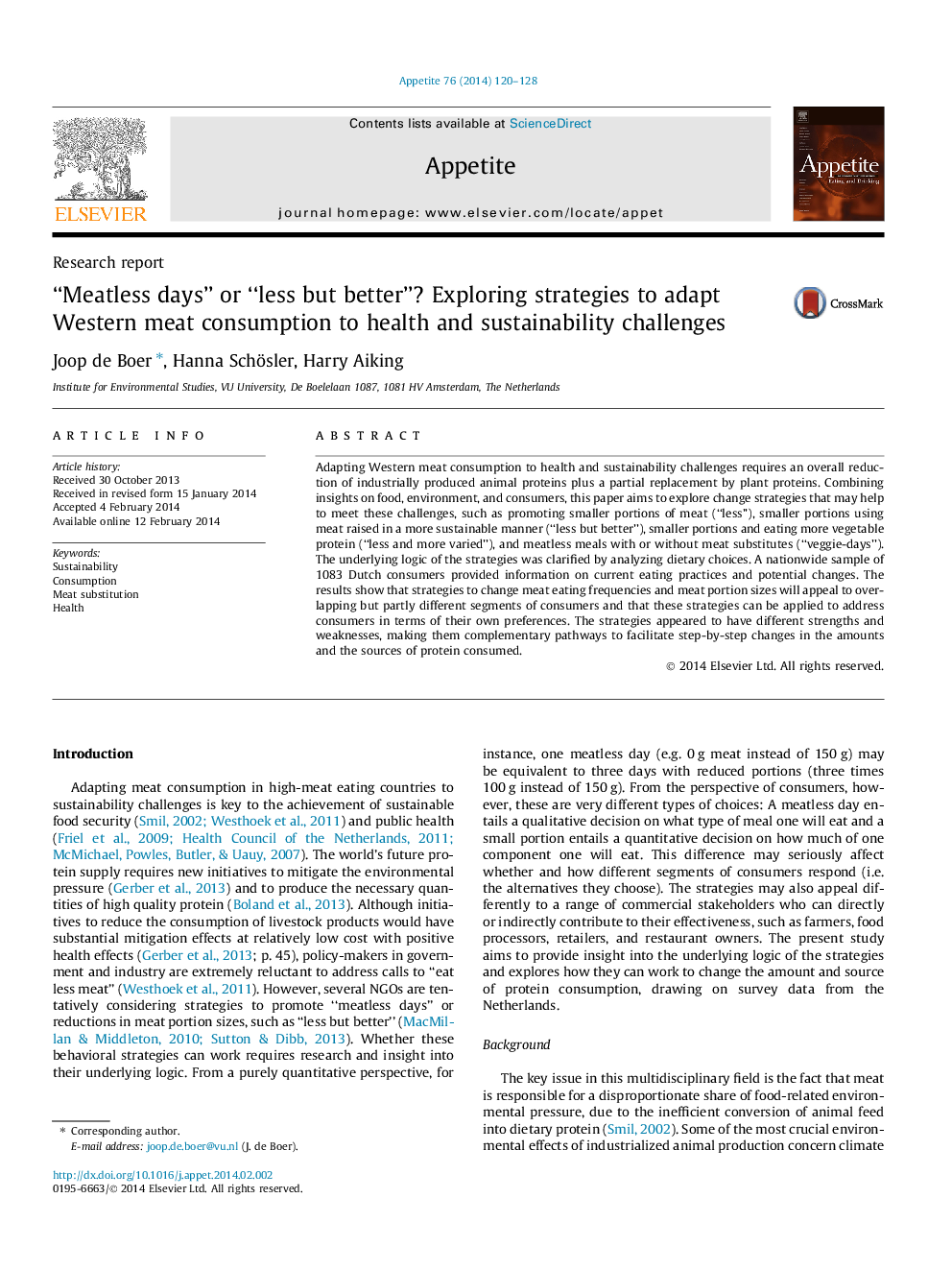| Article ID | Journal | Published Year | Pages | File Type |
|---|---|---|---|---|
| 939503 | Appetite | 2014 | 9 Pages |
•Explores diet change strategies to meet health and sustainability challenges.•Focuses on the amounts and the sources of protein consumed.•Uses theoretical insights and a nationwide consumer sample.•Analyzes current meat eating practices and potential changes.•Shows that the strategies appeal to partly different consumer segments.
Adapting Western meat consumption to health and sustainability challenges requires an overall reduction of industrially produced animal proteins plus a partial replacement by plant proteins. Combining insights on food, environment, and consumers, this paper aims to explore change strategies that may help to meet these challenges, such as promoting smaller portions of meat (“less”), smaller portions using meat raised in a more sustainable manner (“less but better”), smaller portions and eating more vegetable protein (“less and more varied”), and meatless meals with or without meat substitutes (“veggie-days”). The underlying logic of the strategies was clarified by analyzing dietary choices. A nationwide sample of 1083 Dutch consumers provided information on current eating practices and potential changes. The results show that strategies to change meat eating frequencies and meat portion sizes will appeal to overlapping but partly different segments of consumers and that these strategies can be applied to address consumers in terms of their own preferences. The strategies appeared to have different strengths and weaknesses, making them complementary pathways to facilitate step-by-step changes in the amounts and the sources of protein consumed.
